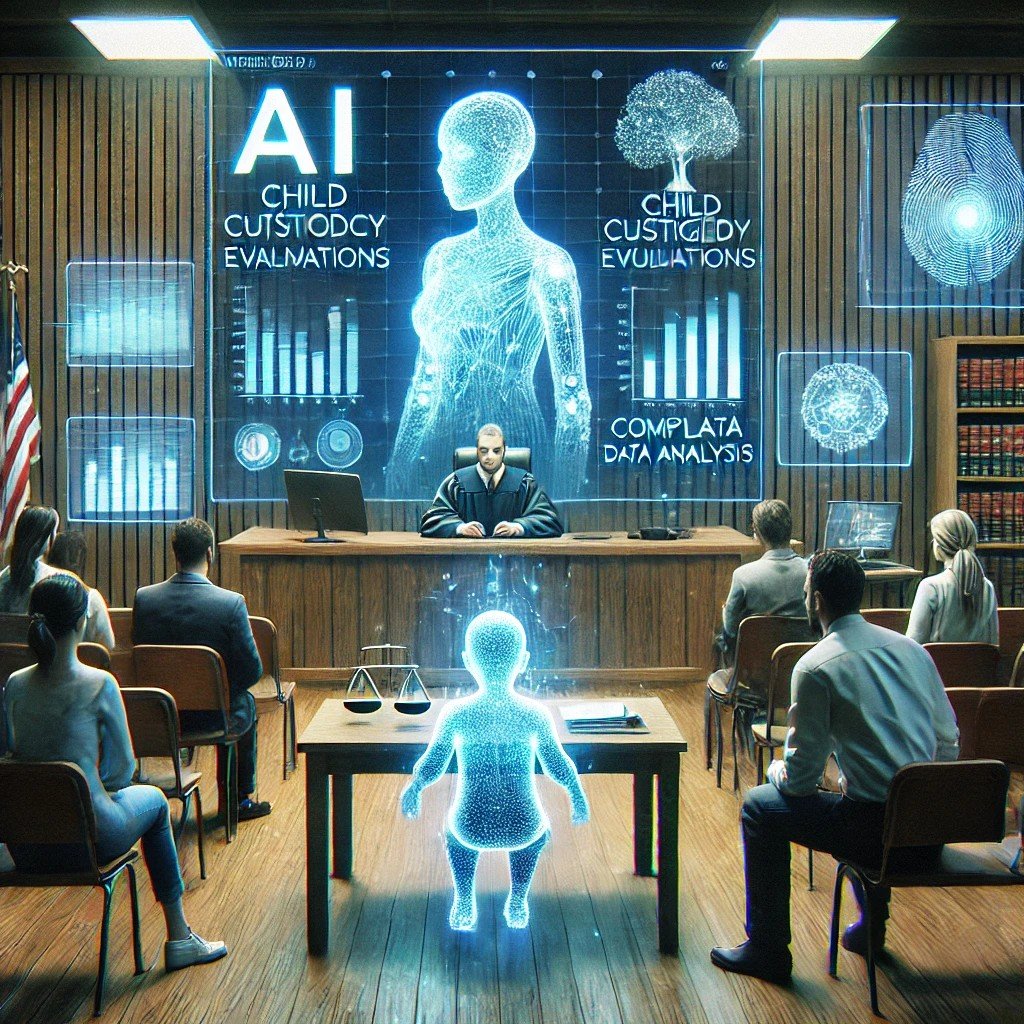The Role of Artificial Intelligence in Custody Evaluations in New York: Present and Future
In the high-stakes world of child custody disputes in New York, determining the "best interests of the child" is the ultimate goal. Traditionally, this decision has relied on forensic custody evaluations conducted by mental health professionals, who analyze family dynamics, parental fitness, and a child’s well-being. However, these evaluations are costly, often exceeding $4,000-$10,000, and can take months to complete (National Law Review).
But what if artificial intelligence (AI) could streamline this process? AI is already transforming industries from finance to healthcare—and now, it’s making waves in family law. Could AI make custody evaluations faster, fairer, and more affordable?
AI’s Growing Role in Custody Disputes
AI is already being used in New York to assist with legal decision-making, and its potential in family court is immense. Here are some key areas where AI could make an impact:
1. AI-Powered Co-Parenting Tools
AI-driven apps like OurFamilyWizard and TalkingParents already help divorced or separated parents coordinate schedules, track expenses, and manage communication. Future AI tools could analyze messaging patterns to detect conflicts early and suggest strategies for smoother co-parenting.
2. AI-Assisted Custody Evaluations
Instead of relying solely on human evaluators, AI could analyze vast amounts of case law, expert reports, and behavioral patterns to provide data-backed insights. This doesn’t mean replacing human judgment but rather enhancing it by identifying trends that might not be immediately obvious.
3. Judicial Decision Support
The New York State judiciary is exploring AI to predict case durations, manage caseloads, and assist judges in evaluating evidence (New York City Bar). AI could help judges spot inconsistencies in testimonies or assess parental suitability more efficiently.
The Ethical and Legal Challenges of AI in Family Law
While AI presents exciting opportunities, it also raises significant challenges:
1. Bias in AI Algorithms
AI learns from existing data, which may contain racial, socioeconomic, or gender biases. If an AI system is trained on biased custody rulings, it may perpetuate unfair outcomes, disproportionately favoring one parent over another.
2. Transparency and Trust
Many AI systems operate as "black boxes", meaning their decision-making processes are not easily understandable. In a legal setting, transparency is crucial—parents and attorneys must be able to challenge AI-based recommendations.
3. New York’s AI Regulations
New York is taking proactive steps to regulate AI. The proposed New York Artificial Intelligence Bill of Rights aims to ensure fairness, transparency, and accountability in AI applications affecting citizens (New York State Senate). Additionally, state agencies must now monitor and report on their use of AI (Yahoo News).
The Future of AI in Custody Evaluations
So, what’s next for AI in child custody cases? Here’s what we can expect:
AI-driven forensic tools that analyze parental interactions and suggest custody arrangements based on psychological research.
Predictive analytics to forecast potential co-parenting conflicts before they escalate.
Virtual mediation using AI to facilitate dispute resolution without the need for court intervention.
Final Thoughts
AI won’t replace human evaluators, judges, or attorneys—but it can make custody decisions more efficient, data-driven, and potentially fairer. As New York moves toward AI integration in the legal system, the challenge will be to balance innovation with fairness and ethics.
For now, parents and attorneys should stay informed and engaged as AI begins to reshape the landscape of child custody law in New York. Want to learn how it can impact your situation? Contact The Schreck Law Group today!
